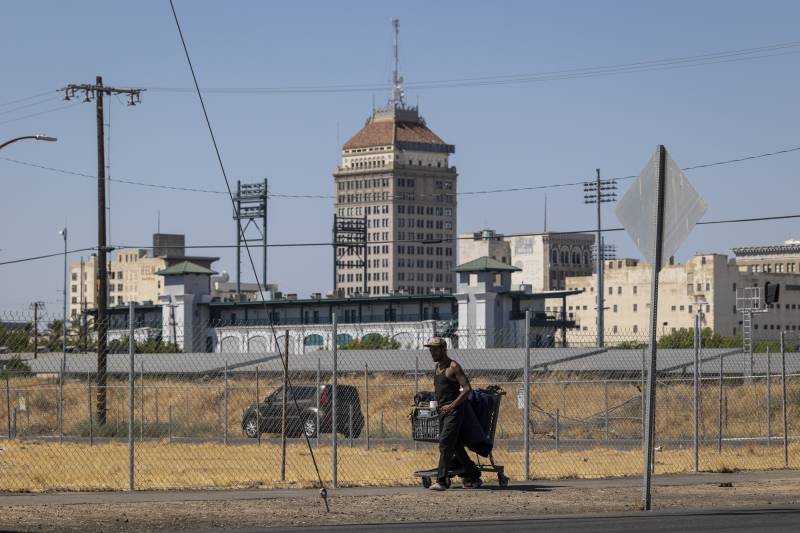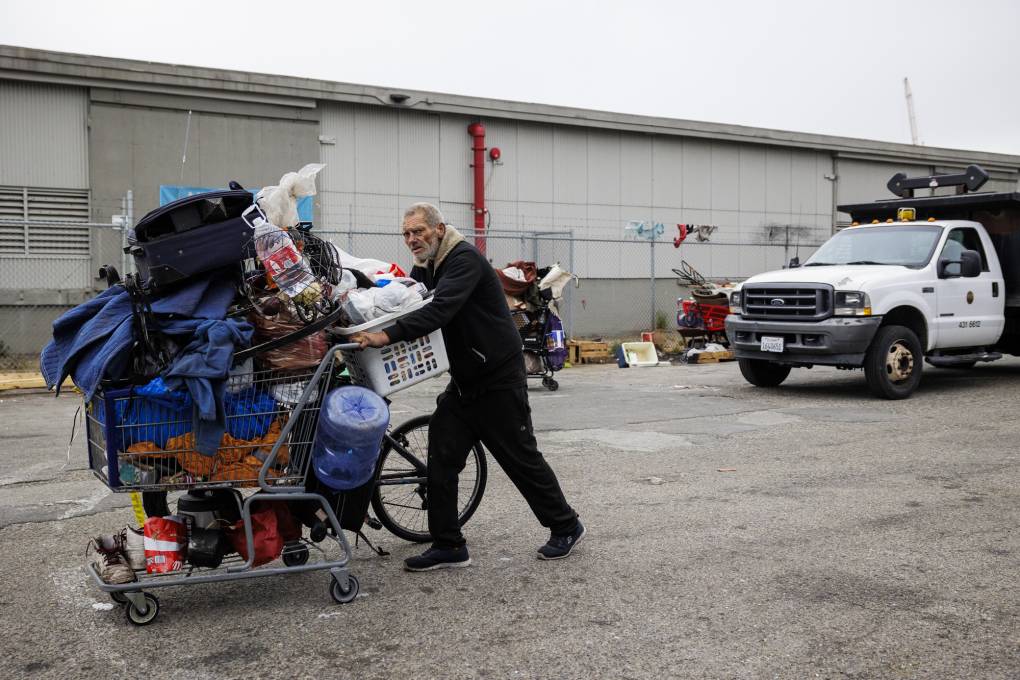Rather than help, though, advocates for people experiencing homelessness warn it will push unhoused people further to the margins as they cycle in and out of jail and rack up debt, making it harder to get off the streets.
“Criminalizing homelessness has long proven to be a total destabilizing factor in their lives. It increases the chances of being homeless on the streets again, and it’s not a resolution,” local activist Bob McCloskey said.
The city council passed the law in mid-August over loud complaints from McCloskey and other advocates. It builds on a similar 2018 ordinance that wasn’t carried out because it included a provision that allowed for enforcement only if there were enough shelter beds for the city’s entire unhoused population, said Fresno City Attorney Andrew Janz, a policy that was in keeping with standing legal precedent at the time.
Then, the Supreme Court’s decision opened the door for local law enforcement to cite and arrest unhoused people regardless of whether a city has shelter beds to offer. Since then, 46 jurisdictions across the country have enacted new policies or, as in Fresno’s case, amended existing policies, according to Eric Tars, legal director of the National Homelessness Law Center. In one of the most extreme cases, he said, a Tennessee state law that makes public camping a felony punishable by up to six years in prison is now being enforced.
“None of these laws are actually helping anyone end their homelessness in any way except by incarcerating them, which is the most expensive way to house a person,” Tars said, noting that in many places, people could be housed for a month for the cost of a week in jail.
“Nobody chooses to be homeless and to have to urinate or defecate or use drugs outdoors,” he said. “That choice has been made for them by the elected officials who have known for years that we have an affordable housing crisis and have chosen to not fix it and now are redirecting the blame onto the very victims of that failure.”
Fresno’s ordinance encourages judges and attorneys to consider diversion or probation in lieu of a fine or jail time, contingent on completion of a rehabilitation program.
Janz, whose office will oversee prosecutions under the law, said he would direct his prosecutors to prioritize plea deals that involve enrollment in mental health or treatment programs rather than jail time or fines.
“This is a new area of law for us,” he said, “so we’ll see what the courts do.”
He said the police chief will need to guide police officers about when to cite and arrest suspected violators under the new law.
Interim Police Chief Mindy Castro said officers would get training on how to offer services and when to make arrests, in addition to eight hours of crisis intervention training. When it comes to people living in vehicles, Castro said officers would make case-by-case determinations.
“There has been a reluctance to take people into custody,” she said. “This helps them have the confidence to make a lawful arrest when the circumstances are proper.”
The mayor said Monday that police would prioritize enforcement in sensitive areas, such as near schools, and continue offering shelter and services first. If unhoused residents turn them down, the police will ask them to move.
“However, if they are habitual offenders of the ordinance, then we’ll use a different approach,” Dyer said. Neither he nor Castro provided clarity on what defines a “habitual offender.”
After issuing a citation, Dyer said officers would then have the option to take people to a treatment facility if a bed is available and they’re willing. If they complete the program, he said the police report wouldn’t be filed.
But after the press conference ended, Dez Martinez, a longtime homeless advocate, had a different scenario in mind: “Where do we go if we say ‘yes’ and there’s no bed?”
Standing next to her, Corina Cruz, who said she’d been unhoused in Fresno for seven years, said she had accepted a spot at a shelter that provides mental health services, Sierra Sunrise, and wound up back on the streets when her time there was up.
“I went into the programs, and they didn’t help me,” Cruz said.
“She’s a product of what they’re talking about,” Martinez said of the new law. “It’s not gonna work.”
Martinez and other activists have been handing out information cards that instruct anyone under threat of arrest to tell police they are “traveling” rather than sitting, sleeping, lying or camping.

